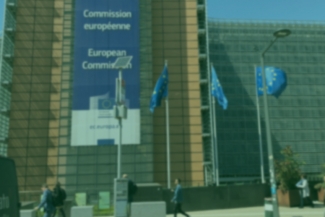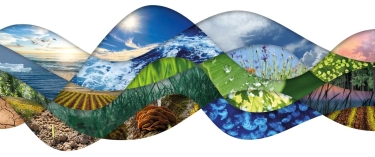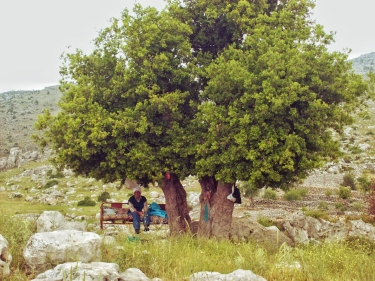Embrace the Green Deal!

On 24 June, the Integrate Network facilitated by the European Forest Institute organised the first Integrate Webinar. The webinar focused on the European Green Deal and its impacts on forest management and protection in Europe, with a special focus on the integration of biodiversity conservation into sustainable forest management – which is the main focus of the Network.
The Green Deal aims to transform the EU’s society and economy to include a larger focus and emphasis on natural capital. For forests, forestry, and all related stakeholder groups, this could have a broad spectrum of consequences including for ecosystem services governance, biodiversity protection, and biomass production. Therefore, it is important to connect the policy vision of the role of forests in the Green Deal with the perspectives of national policymakers, scientists, nature protection administration, forest owners, forest managers, and all interested stakeholders.
The webinar invited two speakers and stimulated a discussion between stakeholders to answer a two-part question: How should we address key issues such as climate change, biodiversity, bioeconomy, and societal expectations, and how should we manage the trade-offs between these issues in integrated forest management?
The first speaker, Humberto Delgado Rosa, Director for Natural Capital, DG Environment, European Commission focused on the biodiversity-related principle of the Green Deal and the relation between the Deal and the EU Biodiversity Strategy. In his presentation, he explained four elements of the Biodiversity Strategy: (1) Protect Nature, (2) Restore Nature, (3) Enable Transformative Change, and (4) EU for an Ambitious Global Agenda. Concerning the first element, he emphasised the target goal to protect 30% of EU land and sea, as well as an urgent need to define and map European old-growth forests. For the second element of restoring nature he discussed the aim of planting 3 billion additional trees respecting ecological principles, restoration of 25,000 km of free-flowing rivers, and promotion of nature-based solutions. A high importance was placed on the interlinkages between Biodiversity and Forest Strategies and the plan of the Commission to prepare a new EU Forest Strategy building on the 2030 Biodiversity Strategy. Delgado Rosa elaborated on the actions planned for forests and forest management in the Biodiversity Strategy, and stressed the interest of the Commission in biodiversity-friendly practices such as closer-to-nature forestry.
The second speaker, Andrew Doyle, former Irish Minister of State for Forestry from the Department of Agriculture, Food, and the Marine brought an interesting practical perspective on the Green Deal and its forest-related propositions. He began his presentation with a brief introduction of the characteristics of Irish forests and forestry. While he strongly emphasised the key role of forests in achieving goals set by the Green Deal and the Biodiversity Strategy, he placed an equal importance on the role of resilience in managing and adapting to climate change. “Forests are the part of the solution” – he stated. Another important element of his presentation referred to the social expectations and involvement of stakeholders. He stressed the need to improve communication and ensure that the benefits of forests are more widely understood. In regards to the implementation of the Green Deal, the former Minister stated that countries need to “embrace the Green Deal and unlock the potential of forests”. While he acknowledged that the Green Deal is ambitious and challenging for EU countries, he explains that it is a reliable and sustainable course towards carbon neutrality.
The discussion that followed the session engaged various groups of stakeholders including researchers, nature protection agencies, forest managers, policy makers, private forest owners, and forest industries to further discuss the subject of the Webinar. The Integrate Network Secretariat at EFI is planning more webinars in this format in the future.
You can also visit the integratenetwork.org website.
Reposted from the Resilience Blog


